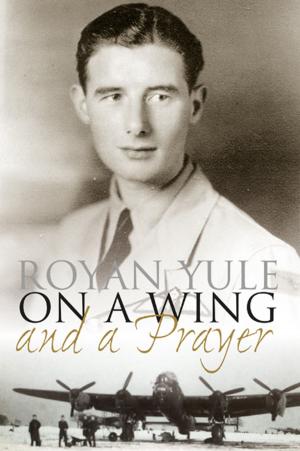Forty Million Dollar Slaves
The Rise, Fall, and Redemption of the Black Athlete
Nonfiction, Sports, Reference, Social & Cultural Studies, Social Science, Cultural Studies, African-American Studies, History, Military| Author: | William C. Rhoden | ISBN: | 9780307565747 |
| Publisher: | Crown/Archetype | Publication: | February 10, 2010 |
| Imprint: | Broadway Books | Language: | English |
| Author: | William C. Rhoden |
| ISBN: | 9780307565747 |
| Publisher: | Crown/Archetype |
| Publication: | February 10, 2010 |
| Imprint: | Broadway Books |
| Language: | English |
NEW YORK TIMES BESTSELLER • “An explosive and absorbing discussion of race, politics, and the history of American sports.”—Ebony
From Jackie Robinson to Muhammad Ali and Arthur Ashe, African American athletes have been at the center of modern culture, their on-the-field heroics admired and stratospheric earnings envied. But for all their money, fame, and achievement, says New York Times columnist William C. Rhoden, black athletes still find themselves on the periphery of true power in the multibillion-dollar industry their talent built.
Provocative and controversial, Rhoden’s $40 Million Slaves weaves a compelling narrative of black athletes in the United States, from the plantation to their beginnings in nineteenth-century boxing rings to the history-making accomplishments of notable figures such as Jesse Owens, Althea Gibson, and Willie Mays. Rhoden reveals that black athletes’ “evolution” has merely been a journey from literal plantations**—where sports were introduced as diversions to quell revolutionary stirrings—**to today’s figurative ones, in the form of collegiate and professional sports programs. He details the “conveyor belt” that brings kids from inner cities and small towns to big-time programs, where they’re cut off from their roots and exploited by team owners, sports agents, and the media. He also sets his sights on athletes like Michael Jordan, who he says have abdicated their responsibility to the community with an apathy that borders on treason.
The power black athletes have today is as limited as when masters forced their slaves to race and fight. The primary difference is, today’s shackles are invisible.
Praise for Forty Million Dollar Slaves
“A provocative, passionate, important, and disturbing book.”—The New York Times Book Review
“Brilliant . . . a beautifully written, complex, and rich narrative.”—Washington Post Book World
“A powerful call for more black athletes to give back to their communities.”—Los Angeles Times
NEW YORK TIMES BESTSELLER • “An explosive and absorbing discussion of race, politics, and the history of American sports.”—Ebony
From Jackie Robinson to Muhammad Ali and Arthur Ashe, African American athletes have been at the center of modern culture, their on-the-field heroics admired and stratospheric earnings envied. But for all their money, fame, and achievement, says New York Times columnist William C. Rhoden, black athletes still find themselves on the periphery of true power in the multibillion-dollar industry their talent built.
Provocative and controversial, Rhoden’s $40 Million Slaves weaves a compelling narrative of black athletes in the United States, from the plantation to their beginnings in nineteenth-century boxing rings to the history-making accomplishments of notable figures such as Jesse Owens, Althea Gibson, and Willie Mays. Rhoden reveals that black athletes’ “evolution” has merely been a journey from literal plantations**—where sports were introduced as diversions to quell revolutionary stirrings—**to today’s figurative ones, in the form of collegiate and professional sports programs. He details the “conveyor belt” that brings kids from inner cities and small towns to big-time programs, where they’re cut off from their roots and exploited by team owners, sports agents, and the media. He also sets his sights on athletes like Michael Jordan, who he says have abdicated their responsibility to the community with an apathy that borders on treason.
The power black athletes have today is as limited as when masters forced their slaves to race and fight. The primary difference is, today’s shackles are invisible.
Praise for Forty Million Dollar Slaves
“A provocative, passionate, important, and disturbing book.”—The New York Times Book Review
“Brilliant . . . a beautifully written, complex, and rich narrative.”—Washington Post Book World
“A powerful call for more black athletes to give back to their communities.”—Los Angeles Times















